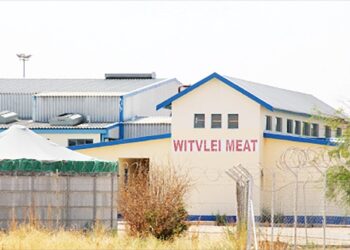
TransNamib and the Namibia Transport and Allied Workers Union (NATAU) on Friday reached a wage agreement that is expected to end a crippling industrial action.
According to terms of the agreement, over 1200 TransNamib employees will benefit from salary increases ranging from 5.5% for employees on A-Band 5.5%, 4.5% for B-Band workers and 3.5% for C-Band and a further addition of N$100 increase on transport to N$642.
“In the spirit of goodwill TransNamib will not apply the No Work, No Pay principle as previously planned and envisaged. Equally NATAU has waived 22 months of back pay, and workers will receive three months instead,” said TransNamib spokesperson Abigail Raubenheimer.
The agreement comes into effect on 16 November 2022 and will only be valid for 2019-20 to 2022/23 financial years.
“To ensure that the trajectory of TransNamib changes and the company moves forward to sustainability, TransNamib and NATAU have agreed to form a united team between them as parties, that will meet at least on a monthly basis in order to deal with all matters pertaining to vastly improving the relationships in the organisation. This is with a view to foster team building, culture change initiatives, and especially high performance for all TransNamib employees,†Raubenheimer said.
In addition, she said, the parties also confirmed their commitment to jointly work together to increase income to an average level of N$45 million per month by the beginning of the next financial period.
TransNamib workers downed tools on 17 August after most of them overwhelmingly opted to picket following a strike voting exercise.
The salary negotiations dates back in 2019, when the union presented a request to have remunerations adjusted by 18% for A-Band workers, 15% B-Band, and 13% for C-Band, before it was rejected and later reduced to15% for employees within the A band, 13% for the workers falling within the B band, and 9% for those within the C band.
However, the parties could not reach any consensus, prompting another offer of 7% increment for the A band, 5.5% for the B band, and 3.5% for the C band, while the very last option before striking was a 7% salary increase across the board.
Raubenheimer said the impact of the strike will only be determined on Monday when all services are normalized.
Previously reports indicated that the rail parastatal was incurring losses of N$10 million monthly.
Â











